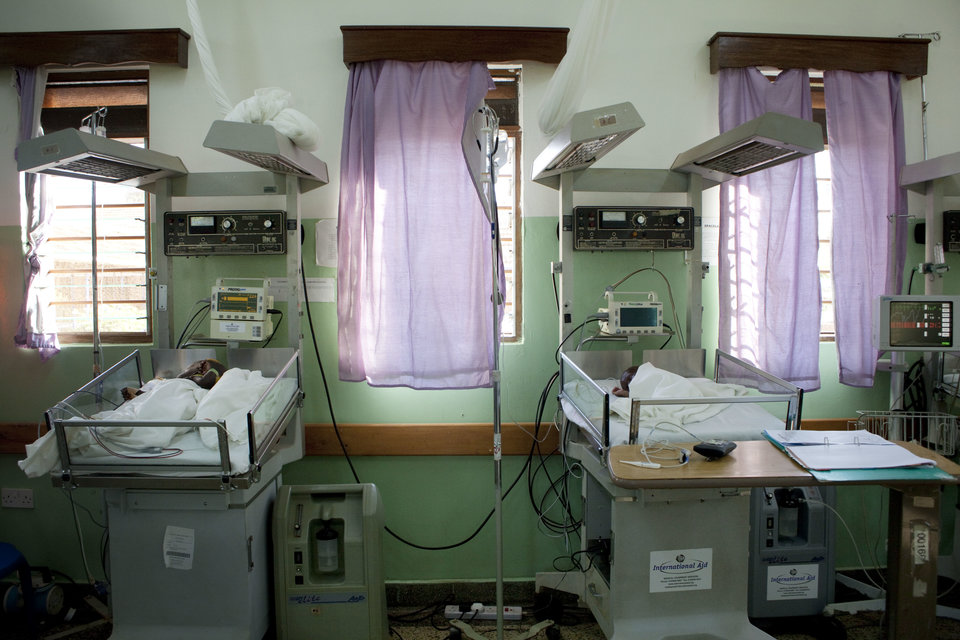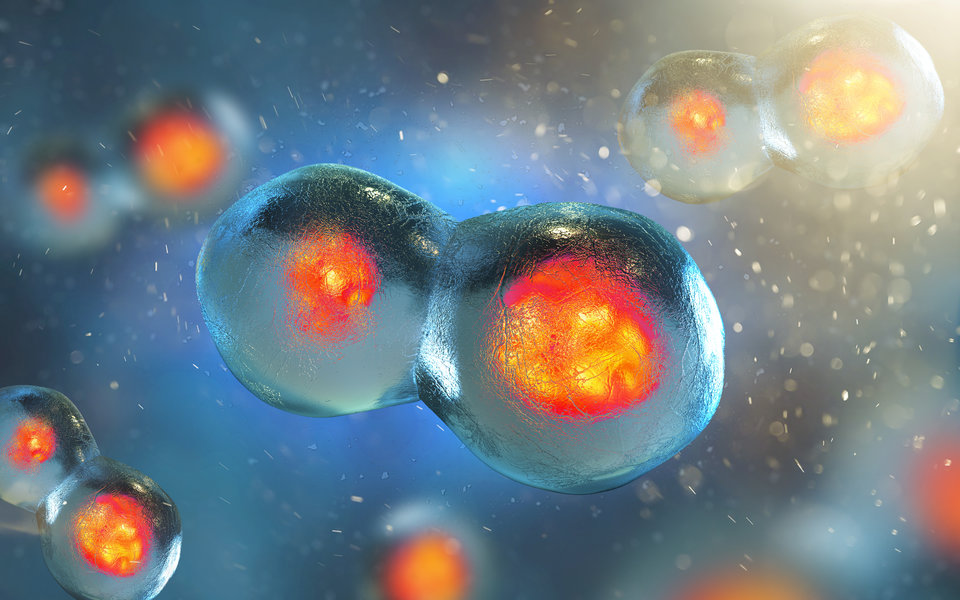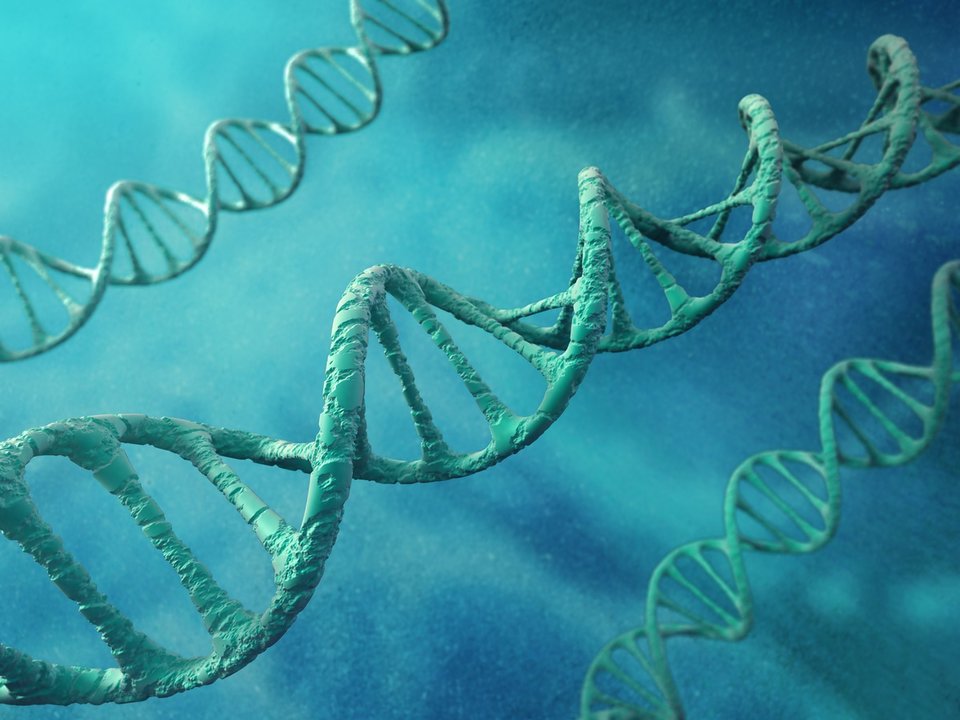What is invisible and will kill more people than cancer in thirty years' time? Answer: bacteria. Years of excessive use of antibiotics has enabled certain bacteria to evolve in a way that has become impossible to treat. Stan Brouns from TU Delft is conducting fundamental research into a possible alternative to antibiotics: bacteriophages.
These days, researcher Stan Brouns’ mailbox is full of heart-wrenching stories about people who have contracted a superbug. Since he told about the possible use of bacteriophages to tackle antibiotic-resistant bacteria on Dokters van Morgen, patients with these bacteria in their system have been turning to the molecular microbiologist for help. ‘I just spoke to someone who was ringing about his daughter’, says Brouns. ‘She had a skin infection that wouldn't go away.’ Some of the patients have bad infections and are seriously ill. Antibiotics don’t help. As always, the million-dollar question is: can ‘these bacteriophages’ turn the tide?
Balanced warfare
What are bacteriophages? Quite simply, they are minuscule viruses that infect bacteria, which then use the bacteria cell as an organic factory to multiply themselves. They aren't particularly impressive: an angular head with a bit of DNA, a tubular neck and a couple of wispy legs. That is all they are. But despite their seemingly simple anatomy, bacteriophages are highly efficient killing machines. They kill a staggering third of all bacteria in our oceans. Not per year, not per month, but every single day. Bacteriophages and bacteria have been keeping each other in equilibrium for billions of years.
Bacteria have developed an arsenal of defensive measures to fend off their arch enemies during the course of this ongoing war with bacteriophages. But evolution has equipped the phages with even better combat techniques to allow them to cross the bacteria’s defence lines. This biological warfare has enabled bacteriophages to become highly specialised. Most phages (as we call them) cannot infect more than one strain of bacteria. But – they are exceedingly good at it.
Bacteria devourer
The French-Canadian microbiologist Felix d’Herelle discovered bacteriophages 100 years ago. World War I had turned Europe into a battlefield, and in the midst of this chaos, d’Herelle was investigating an outbreak of dysentery among the soldiers in France. He made filtrates of faeces samples from a number of soldiers who had somehow managed not to succumb to the disease. He then mixed these bacteria- free filtrates with strains of Shigella bacteria, the pathogen that caused the dysentery outbreak. He cultivated the mixture to observe how the bacteria would grow under the influence of the bacteria-free faeces samples.
When clear patches appeared in the mixture, d’Herelle instinctively understood what was happening: there was an invisible microbe in the bacteria-free mixtures, he wrote in his notes, which was attacking the bacteria. He thought that it was probably a virus that infiltrated bacteria. Not much later, the scientist gave the ‘bacteria viruses’ the name we still use today: bacteriophage, a compilation of ‘bacteria’ and the Greek word ‘phagein’, which means to ‘eat’ or ‘devour’. So bacteriophage literally means ‘bacteria devourer’.
Medical legacy
In the same way as he immediately realised what was happening in his Petri dishes, d’Herelle also understood the implications of his discovery. He experimented with the phages as a method for treating dysentery in the Hôpital des Enfants-Malades in Paris, and later developed several drugs based on bacteriophages. As it happened, antibiotics were discovered around the same time. These drugs also killed bacteria, and even more efficiently than phages. As an antibiotic works on a whole spectrum of bacteria rather than one specific strain, doctors did not need to know exactly which bacterium they were dealing with. Efforts were therefore focused on developing antibiotics. What happened to the phages? They slipped into oblivion.
At least, they did in the West. But after World War II, doctors behind the iron curtain were finding it difficult to get hold of antibiotics. The Eastern Bloc was only too happy to inherit the Frenchman d’Herelle’s medical legacy. Phages became their most important weapon for fighting infections. Unlike in the West, in countries such as Georgia and Russia they continued developing phages as a medicine, and even set up so-called ‘phage banks’.
Bacteriophages attack a bacterium. This image has been made by means of a transmission-elektron-microscope.
Unfortunate immutability
With the benefit of hindsight, we would clearly have done better to continue the work on phages. As demonstrated by the stories Stan Brouns receives in his mailbox every day, antibiotics are gradually losing their power. Increasingly more bacteria are adapting and making themselves immune to certain types of antibiotics. In fact, superbugs have evolved, with the ability to survive treatment with every type of antibiotic currently known to man. The number of patients dying from a simple infection is rising every year. One of the original advantages of antibiotics, their immutability, has become a serious disadvantage.
So what will happen? It is estimated that by 2050, some 10 million people a year will die after being infected with antibiotic-resistant bacteria. The risk of infection from these superbugs will make routine operations life-threatening events in the ‘post-antibiotic era’. Science is doing all it can to develop new antibiotics, but the question is whether – and more importantly when – they will arrive. There is an increasing call for the West to pick up where d’Herelle left off, and start investigating the possibilities of bacteriophage-based drugs.
Incorporating information
The huge gaps in our knowledge mean that there is still a lot we don't know about phages. Stan Brouns’ research group at TU Delft is conducting fundamental research into the biology of bacteriophages and the way they interact with bacteria. One of the researchers in his group is examining the information exchange between various types of bacteriophages, for example. ‘Phages can incorporate information from other phages into their own genome, which allows them to infect a completely different type of bacterium’, says Brouns. ‘One of the aspects we are studying is the efficiency of this exchange principle.’ Another researcher in his group is trying to find out how bacteria can become resistant to phages.
Something that is becoming increasingly obvious is that the minuscule bacteria-killers are much more complex than one would assume. ‘For example, they appear to work alongside our immune system when fighting infections’, explains Brouns. In recent tests, healthy mice and mice with a weakened immune system were infected with a bacterium. Phages were used to see whether they could beat the infection. Brouns: ‘The mice with a healthy immune system recovered, but the mice with a defective immune system did not. This suggests that the immune system and phages sometimes work together.’
Medical tourism
So are phages really a wonder drug, the ultimate solution to our problems with antibiotic resistance? If only. ‘Not all problems relating to antibiotic resistance can be solved with phages’, says Brouns. In addition, we do not yet know how phages will affect the human body. Brouns: ‘We may very well develop antibodies against the viral particles, making them increasingly less effective.’ It is even possible that our immune system will attack certain phages, causing an allergic reaction or worse.
Aspects like these need to be studied in more detail before bacteriophages can be introduced here as a legal drug. In addition, research must meet our high Western standards, demonstrating evidence of effectiveness and safety from clinical trials on groups of patients and control groups. The phage research conducted in Eastern Europe does not meet these standards.
And then, of course, there is the pharmaceutical industry. Unfortunately, phages are tricky customers for a business case. After all, how can you apply for a patent for something that keeps mutating and changes every day? Also: if a drug is so effective that patients are better in no time, is it commercially viable? So Brouns has decided to roll up his own sleeves. ‘I am trying to get the go-ahead for a kind of phage bank here, to put phage therapy on the map.’
Contribution
At present, the sad reality is that people in this country who contract an antibiotic-resistant bacterium are sometimes beyond help. If these people want to undergo phage treatment, they have to go abroad. The costs for medical tourists who see phages as a last resort run into thousands of euros. Brouns is convinced that phages may be a lifeline for patients who have already tried everything that regular medicine has to offer. So he uses his www.fagenbank.nl website to answer frequently asked questions about treatment with bacteriophages and advise people about medical trips to the Eliava Institute in Georgia. He hopes that his appearances in the media and initiatives like his website will set the ball rolling.
According to Brouns, it would make a huge difference if Dutch healthcare insurance companies were to reimburse the cost of phage treatment abroad. ‘Insurers may be willing to pay for the treatment if they see that it works. Quite a lot of people have already been successfully treated in Georgia, so I am hopeful.’





